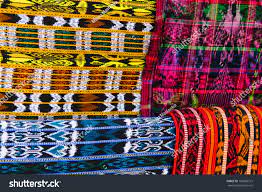A textile and apparel magnate with ties to American brands and manufacturers has been sanctioned by the U.S. State Department for unscrupulous dealings in Central America.
Mohammad Yusuf Amdani Bai, chairman of multinational textile, apparel, and real estate firm GK Global (formerly known as Grupo Karims), was named in the agency’s Corrupt and Undemocratic Actors Report for 2023 under Section 353 of the Northern Triangle Enhanced Engagement Act. Released Thursday, the public document submitted to Congress identifies foreign persons who have knowingly taken part in crimes like bribery, extortion, fraud, and harassment in El Salvador, Guatemala, and Honduras.
According to the U.S. State Department, Amdani, one of Honduras’ richest businessmen, “engaged in significant corruption by bribing Honduran Supreme Court officials to rule in favor of his business in a private lawsuit.” Under Section 353, he will be ineligible for a visa or admission to the U.S., and any existing documentation that could grant him entry will be canceled. The business in question was not named, though GK Global owns a garment manufacturer, two yarn-spinning mills, and a textile chemicals company in the country, along with several industrial parks and other real estate ventures.
A naturalized Honduran citizen, Amdani launched GK Global in the Central American market in 1991 with the opening of Pride Manufacturing, which produced apparel to be exported to the U.S. This kick-started the firm’s expansion throughout the region. The firm’s subsidiaries include about 10 manufacturing bodies across Honduras, Nicaragua, and Mexico that make yarns, textiles, apparel, and packaging like Northern Textiles, Northern Spinning, Northern Chemicals, Honduras Spinning Mills, Nicaragua Spinning Mills, GK Yarn, Ammar Apparel, Karim’s Textiles, Fabrique Manufacturing and South East Manufacturing.
The group, which also operates vertical manufacturer Lucky Knits and label factory American Textile & Apparel in Pakistan, has significant real estate investments on multiple continents, like industrial parks that house its factories and other businesses. The company underwent a rebrand in 2022, changing its name from Grupo Karims to GK Global to reflect the evolution and diversification of its enterprise.
The firm has capitalized on the burgeoning interest in nearshoring and fashion firms’ growing desires to divest from China supply chains following the implementation of the Uyghur Forced Labor Prevention Act (UFLPA). In February, California’s Next Level Apparel (NLA), a 20-year-old designer and manufacturer of blank apparel, announced a strategic partnership with GK Global to develop garments in Central America and Mexico made wholly with U.S. cotton. “There are many benefits of this partnership with GK, including shorter lead times and reduced exposure to geopolitical risks,” NLA CEO Randy Hales said at the time.
The firm has also solicited offshore investments from prominent apparel makers looking to enhance their access to the U.S. market and take advantage of the Dominican Republic-Central America Free Trade Agreement (CAFTA-DR). Seoul-based global garment manufacturer Hansae Co., Ltd. inked a deal with GK Global’s Honduras-based subsidiary Northern Textiles in July, saying it hoped to expand its fabric sourcing and production in the region and shorten lead times for U.S. clients.
Amdani was a speaker at the 38th World Fashion Convention in Philadelphia in October, which attracted manufacturers, brands, and retailers from across the U.S. and the globe. The International Apparel Federation (IAF), which co-organized the event alongside the Sewn Products Equipment & Suppliers of the Americas (SPESA), described the GK Global chairman as “a successful businessman, visionary, entrepreneur, and investor.”
He released “World of Opportunity: Bringing Sustainable Business to Fragile Economies” with Forbes Books weeks earlier, detailing the firm’s three-decade rise to prominence in Honduras and beyond. “Where others saw poverty and few educational opportunities in Honduras, Yusuf Amdani saw a manufacturing hub,” Forbes Books wrote in a press release. “In this Central American country, he saw an opportunity to pay a steady salary to a capable labor pool and help grow the region’s economy.”
However, some former employees don’t see Amdani’s business as the beacon of hope he aims to portray. Olivia Aurora worked at Pride Manufacturing for a decade before she claims she and others were unjustly terminated in 2016 based on occupational health problems resulting from work at the factory. According to Honduran news outlet Contra Corriente, Aurora sued Pride Manufacturing in a labor court for reinstatement of her position along with backpay and benefits, winning not once, but twice, after the company appealed the decision in 2020. As of March 2022, Aurora still had not received the court-mandated compensation from GK Global despite engaging worker rights group Honduran Women’s Collective and reaching a settlement with the firm months earlier.
In March 2021, Mexico’s regulatory health board launched an investigation into GK Global when a private plane owned by Amdani was detained on its way to Honduras. With members of the firm’s upper management on board, Mexican officials discovered thousands of doses of the Sputnik V Covid-19 vaccine hidden in coolers beneath soda cans, presumably to be smuggled into Honduras. The Russian Direct Investment Fund, which developed the vaccine, said that the vials were inauthentic upon examining their labels, the Associated Press reported.
Following the seizure in Mexico, local Honduras media groups wrote that between 1,000 and 4,000 of GK Global’s workers in Campeche had already received doses of a purported Sputnik V vaccine. Mexican authorities did not release further information about the contents of the vials that were confiscated, but GK Global told the AP that the vaccine was intended to be given out for free to its employees and their families.
The U.S. State Department routinely adds to the Section 353 list of Corrupt and Undemocratic Actors, submitting an annual report to the House Foreign Affairs Committee, Senate Foreign Relations Committee, House Committee on the Judiciary, and the Senate Committee on the Judiciary. The 2023 report listed 39 individuals, including Carlos Mauricio Funes Cartagena, a former president of El Salvador who perpetrated schemes involving bribery and embezzlement, Jimi Rodolfo Bremer Ramírez, a Guatemalan judge who authorized politically motivated criminal charges against journalists, Alexander Lopez Orellana, mayor of the Honduran city of El Progreso, who awarded multi-million dollar municipal contracts to his political allies and Wendy Carolina Morales Urbina, the current Nicaraguan attorney general, who used her office to coordinate a campaign to suppress dissent from the government’s political opponents.
The Northern Triangle Enhanced Engagement Act, passed by Congress in 2020, authorized U.S. foreign assistance to El Salvador, Guatemala and Honduras. It requires that the U.S. State Department devise strategies to help these nations address instability, promote economic development and mitigate corruption, and report on these issues each year. (https://sourcingjournal.com/topics/sourcing/gk-global-central-america-honduras-textile-apparel-state-department-bribery-485600/)



































